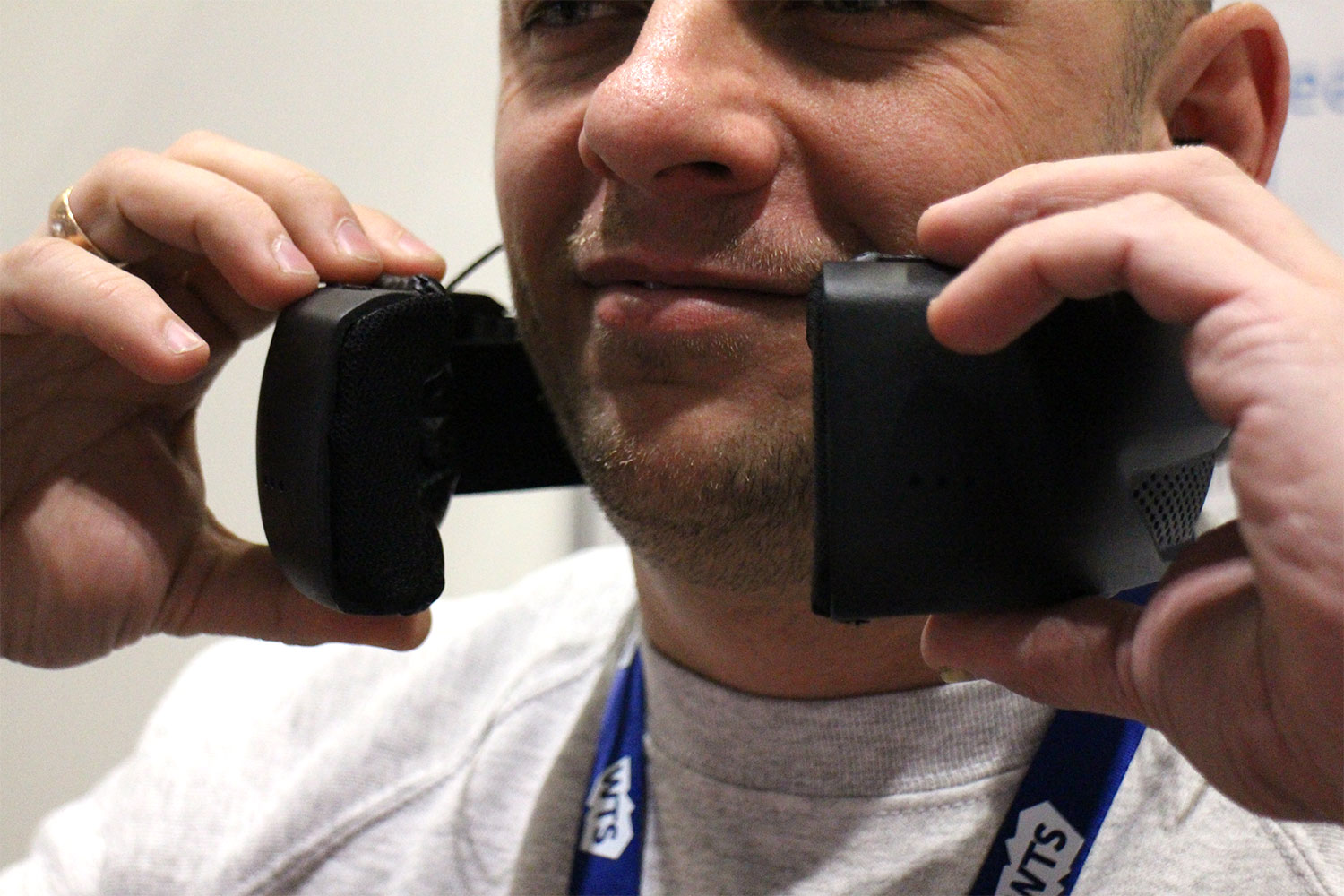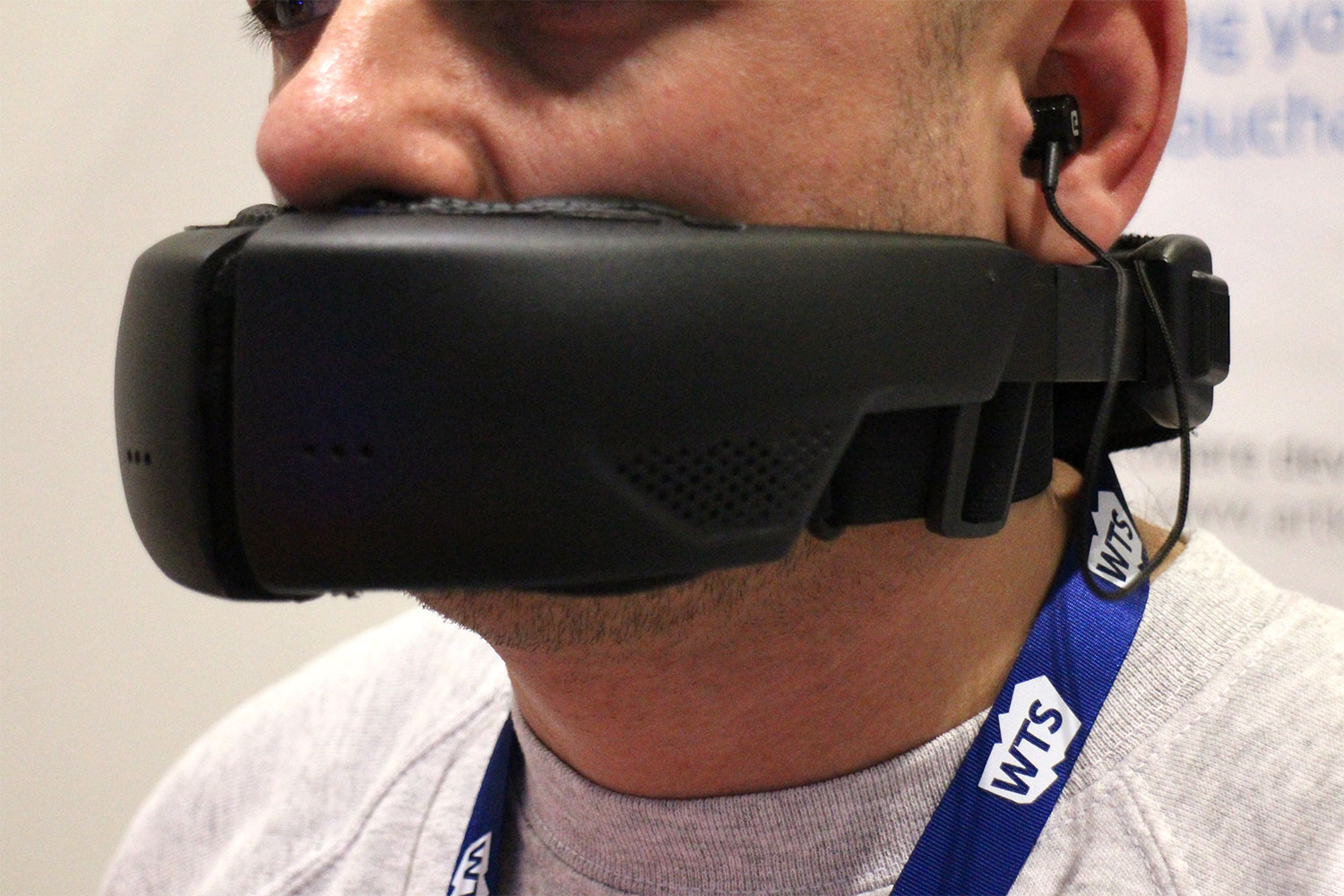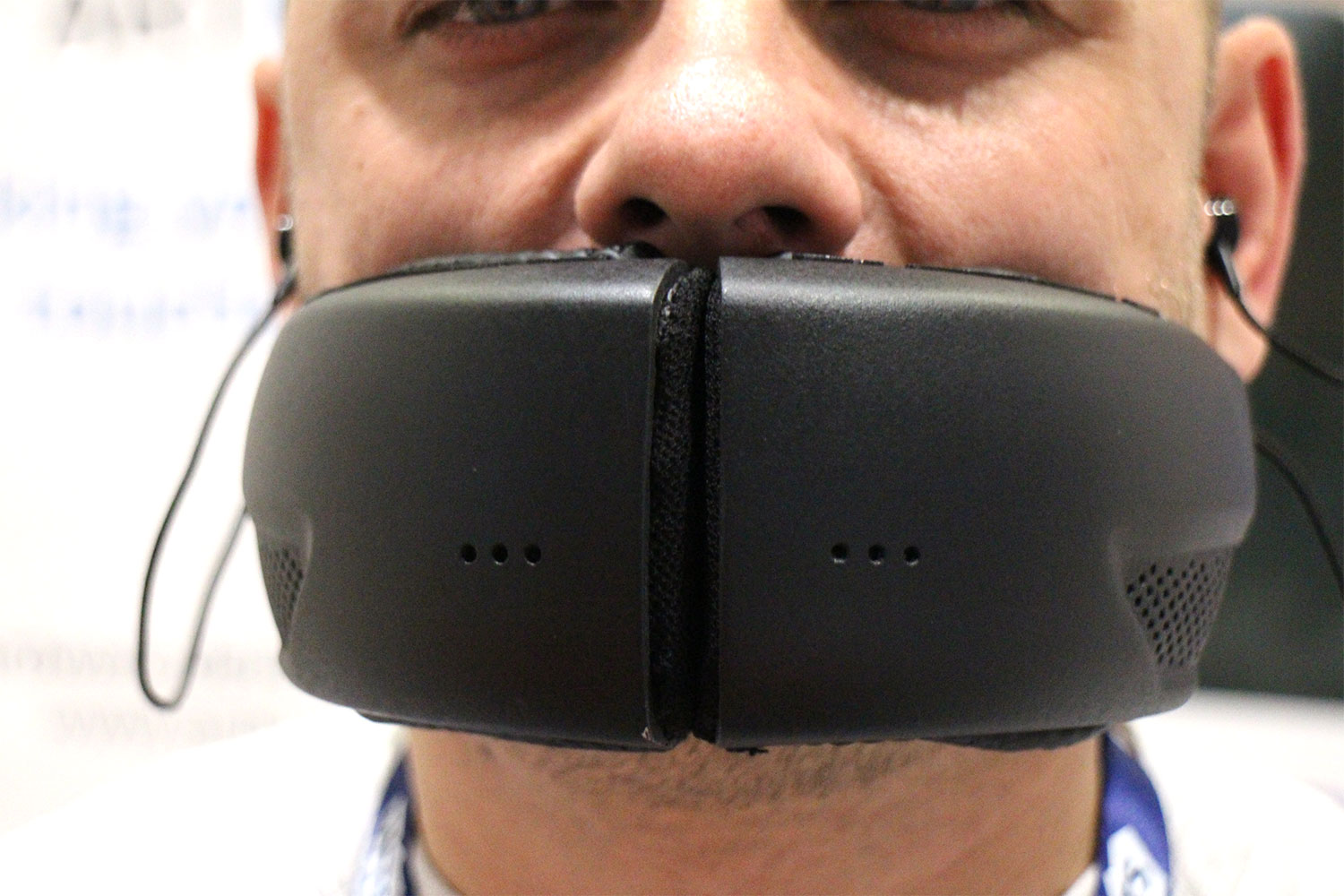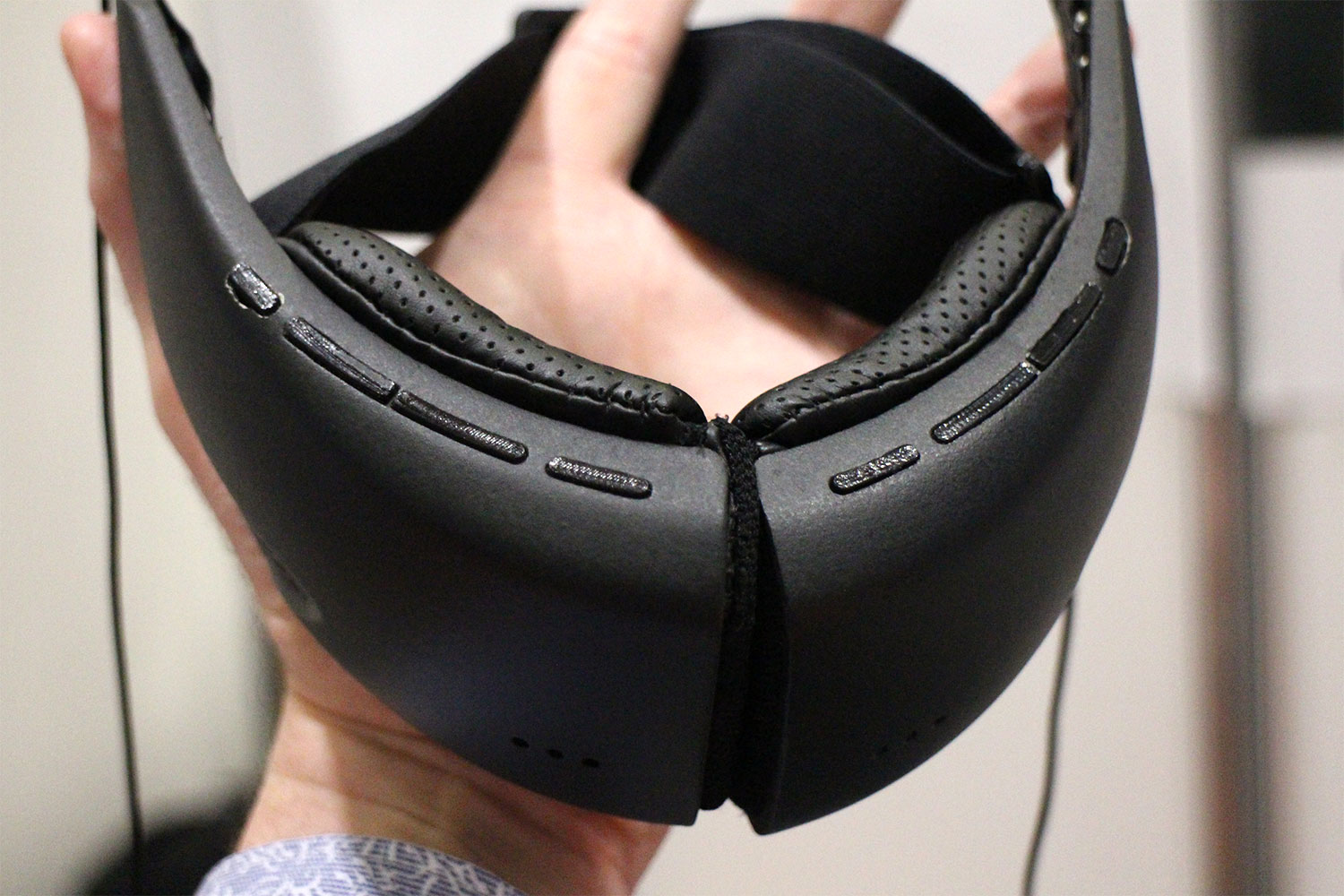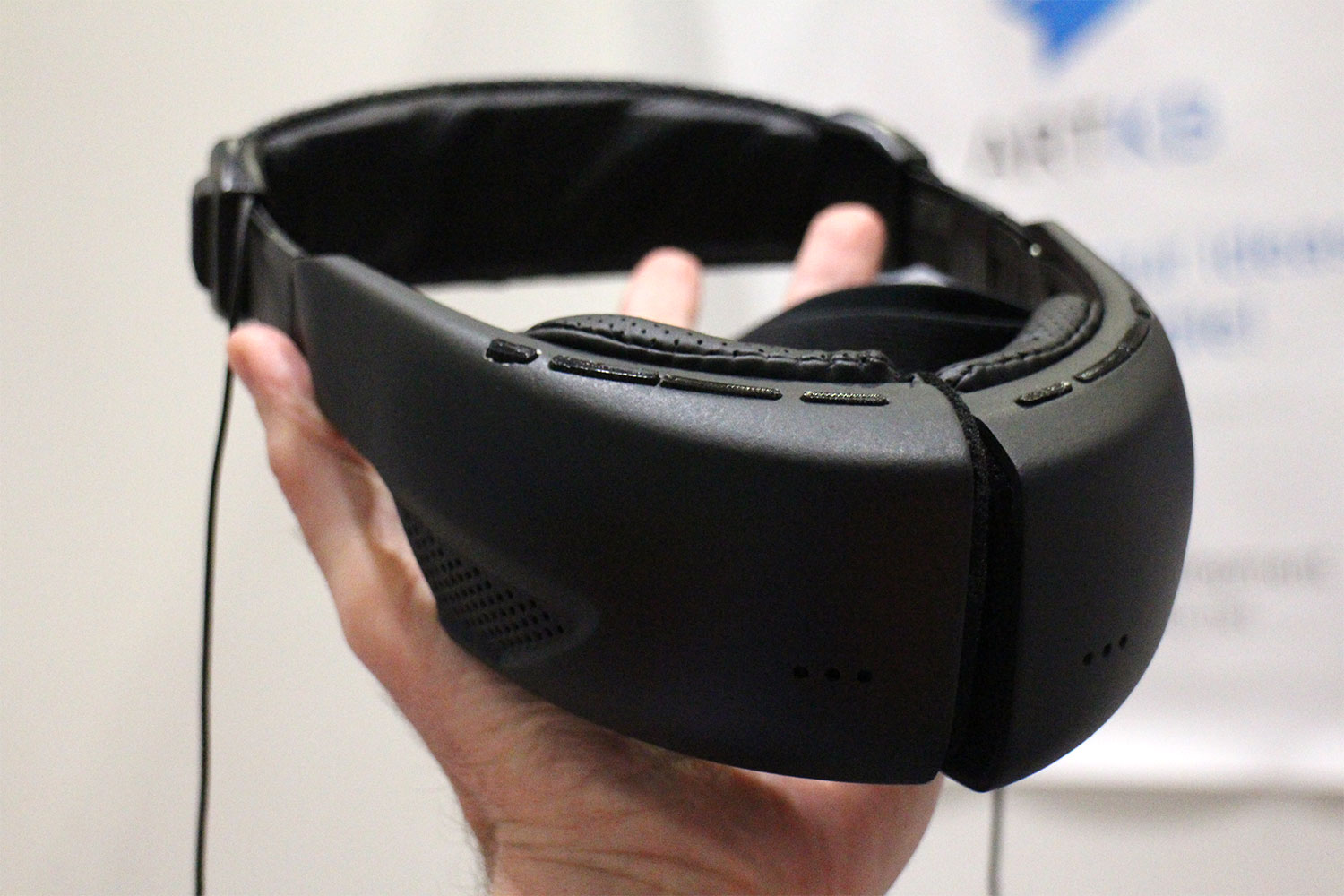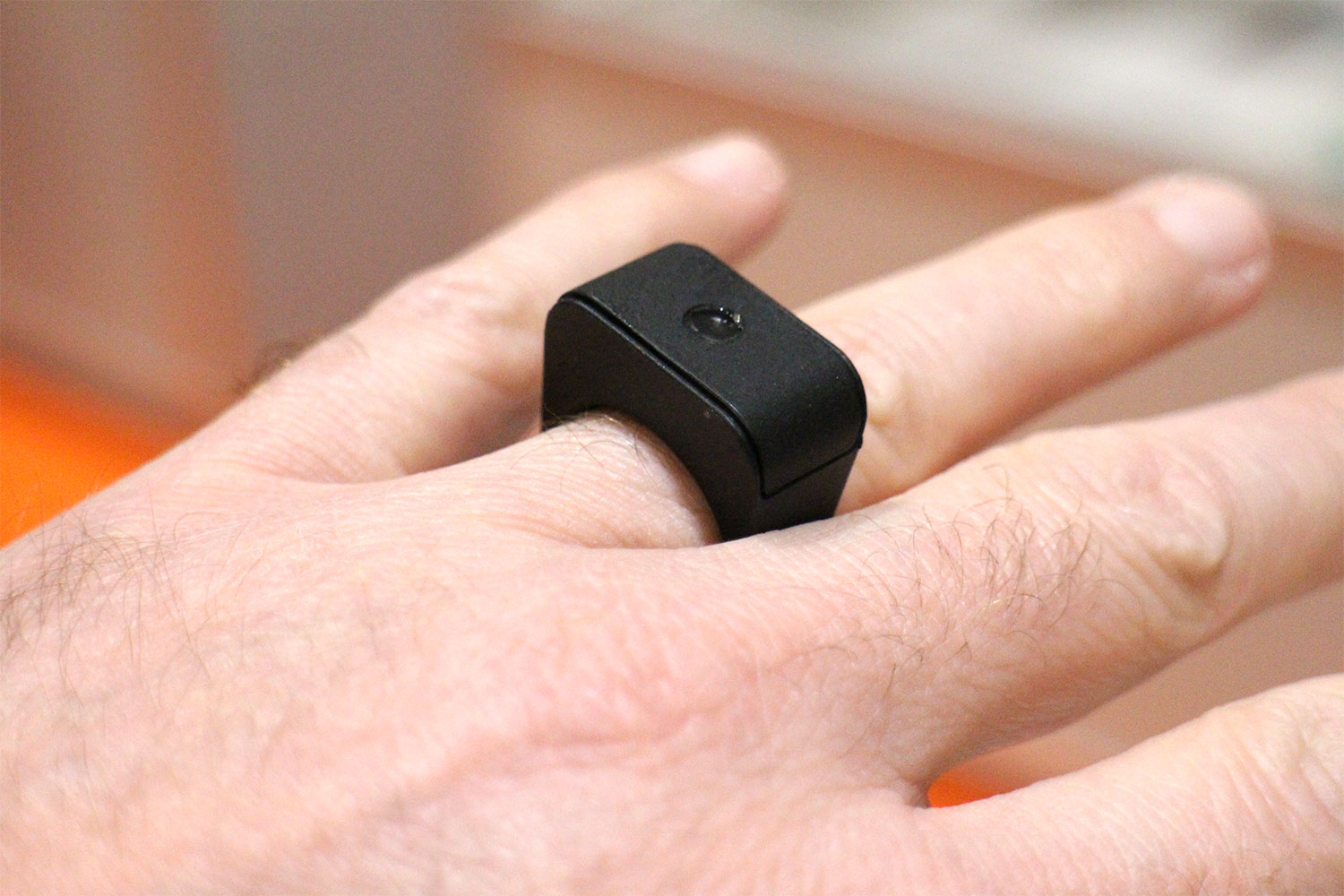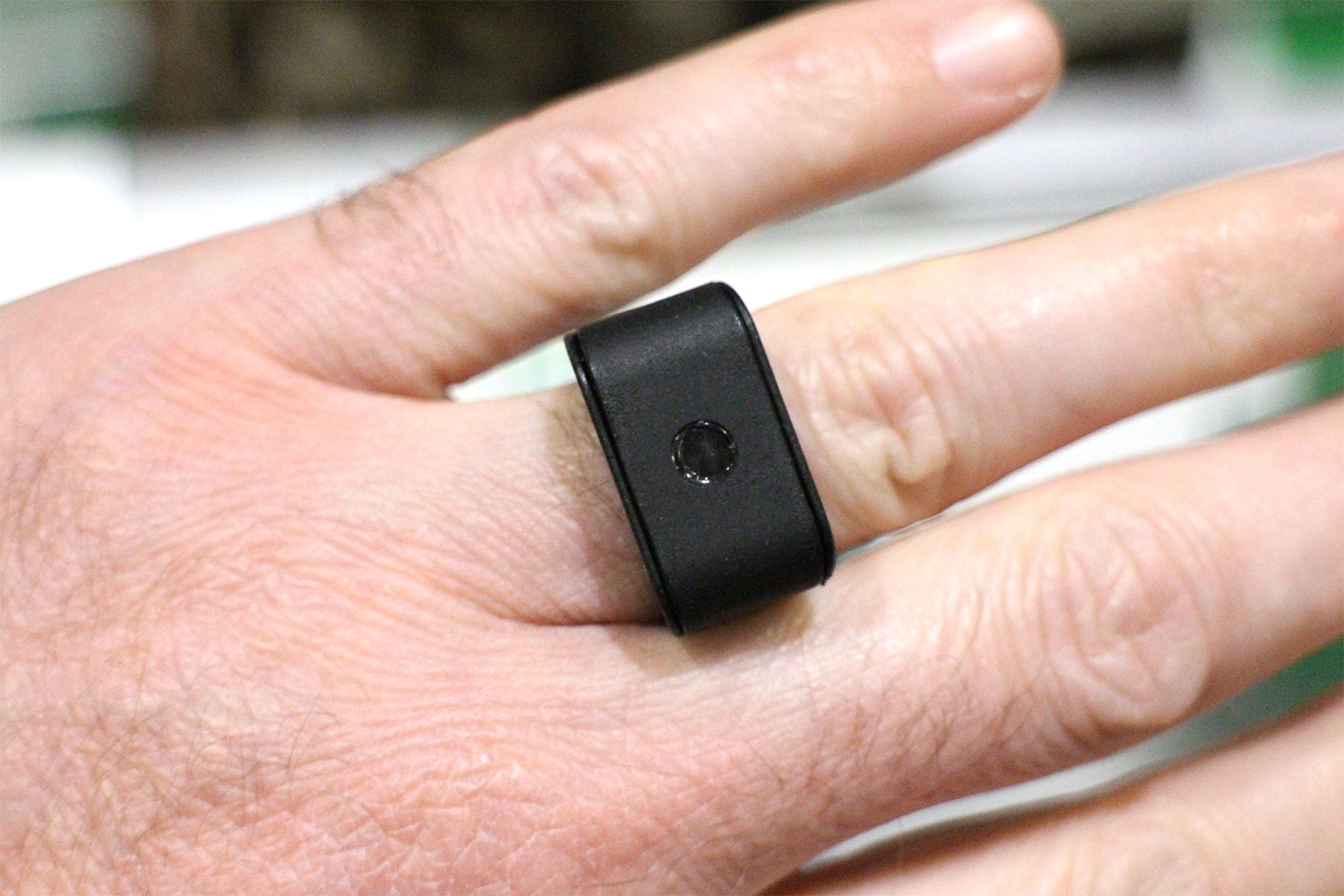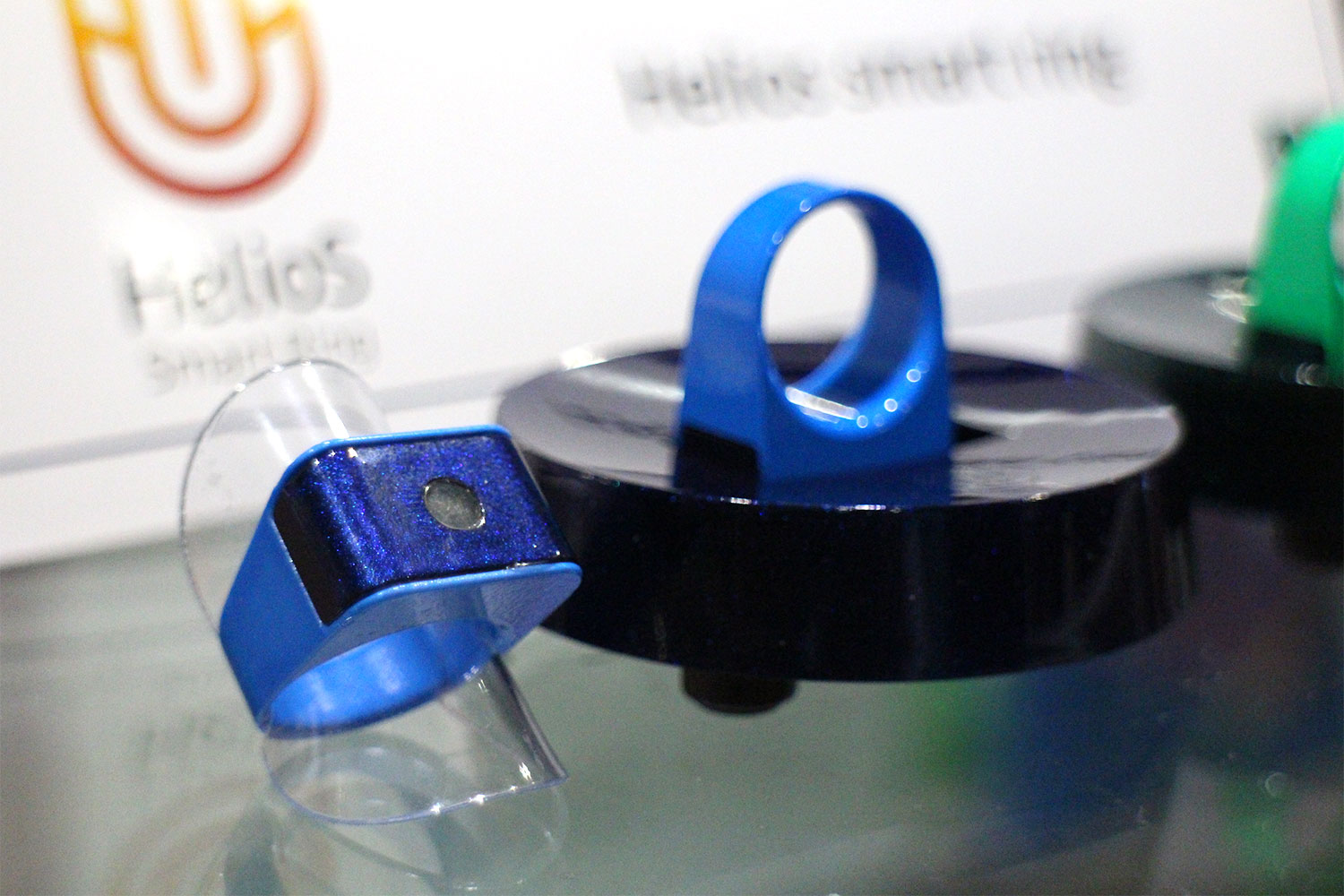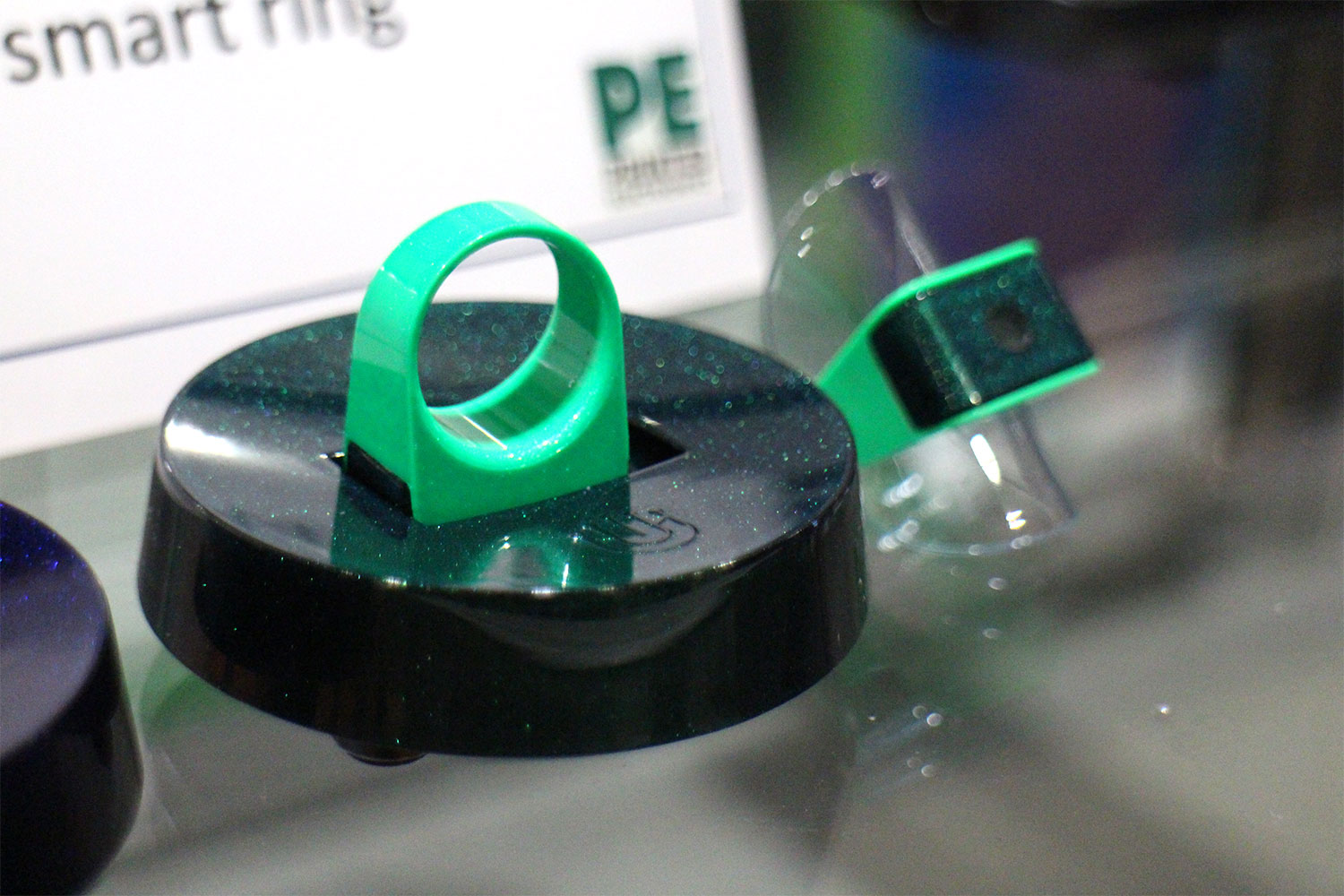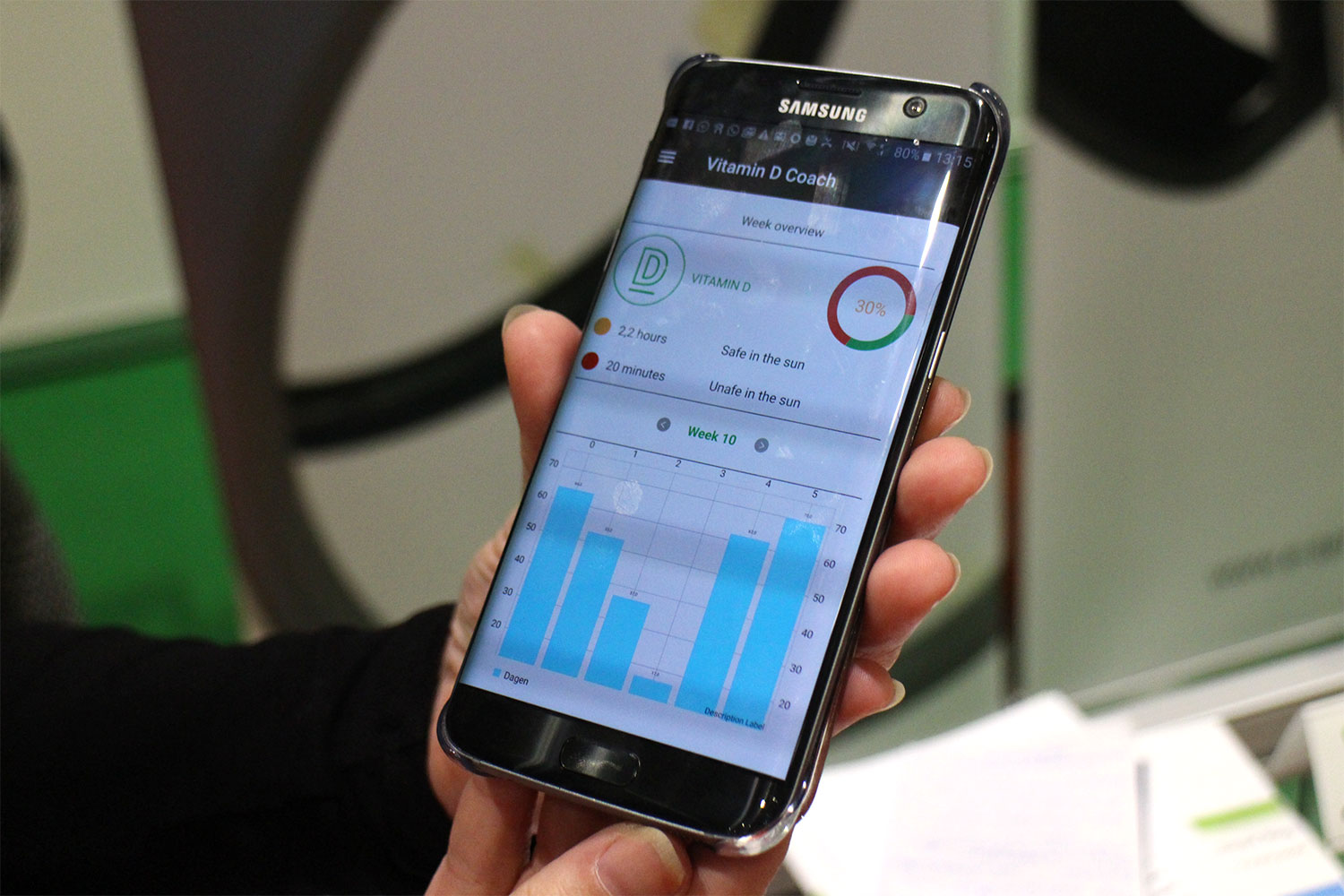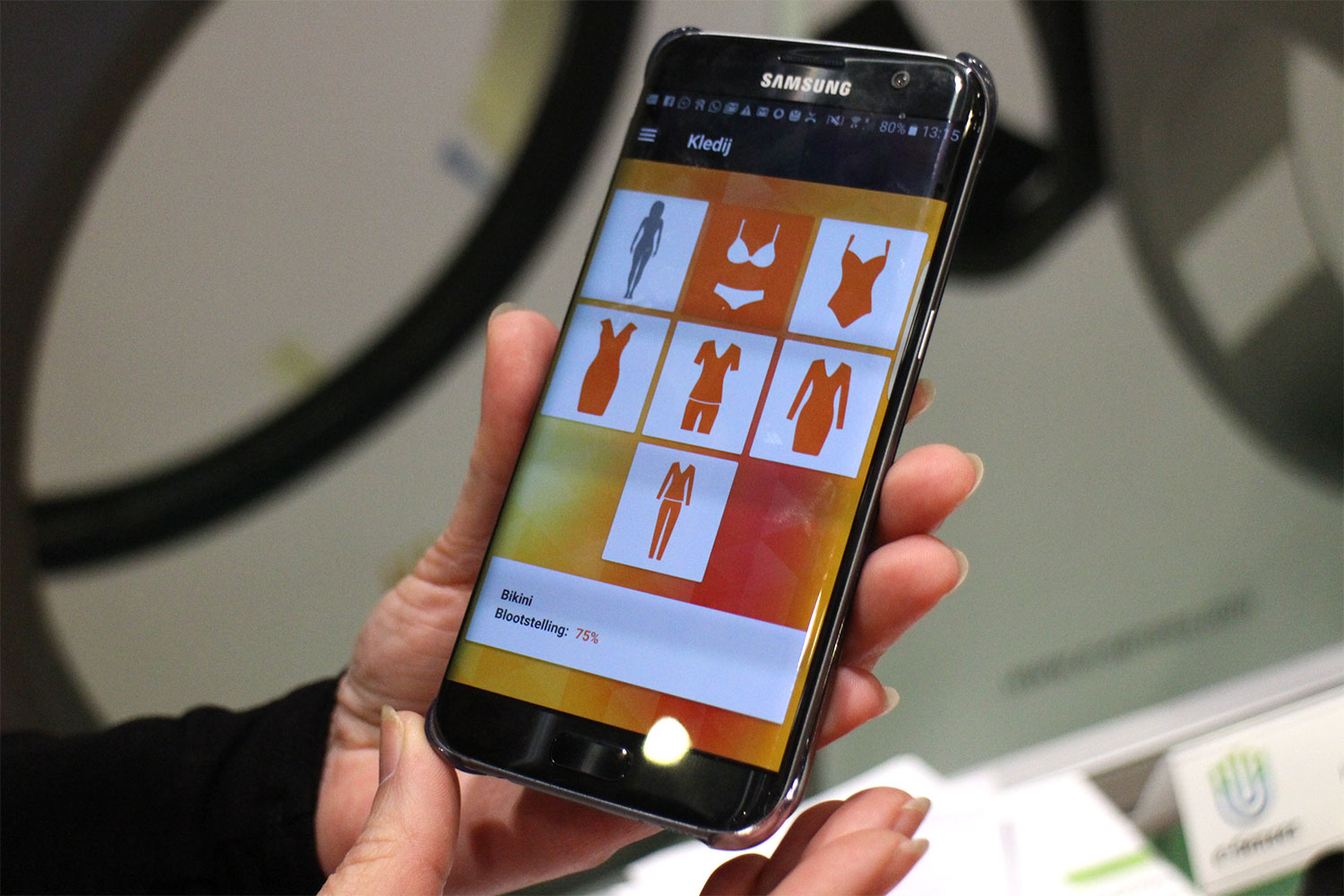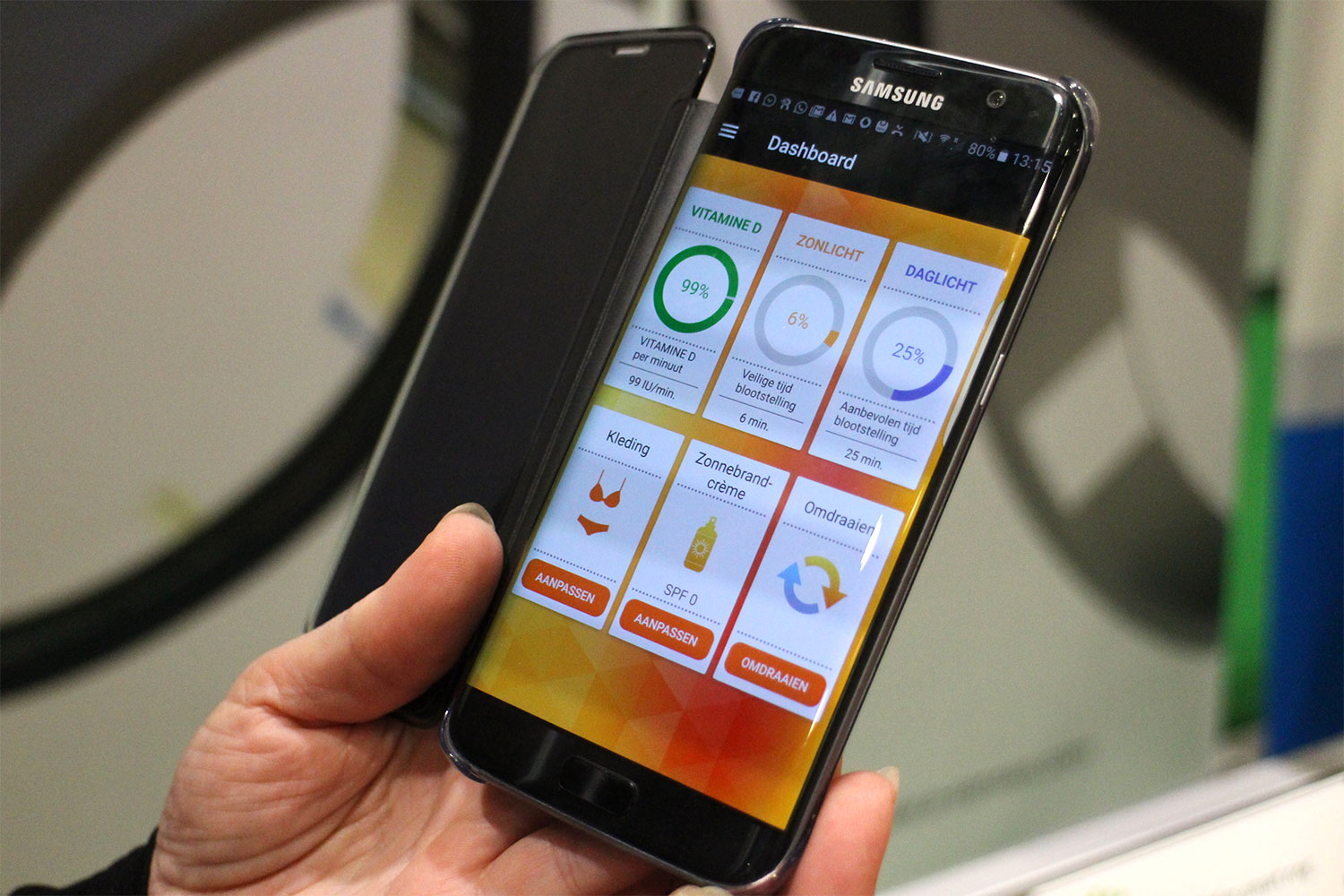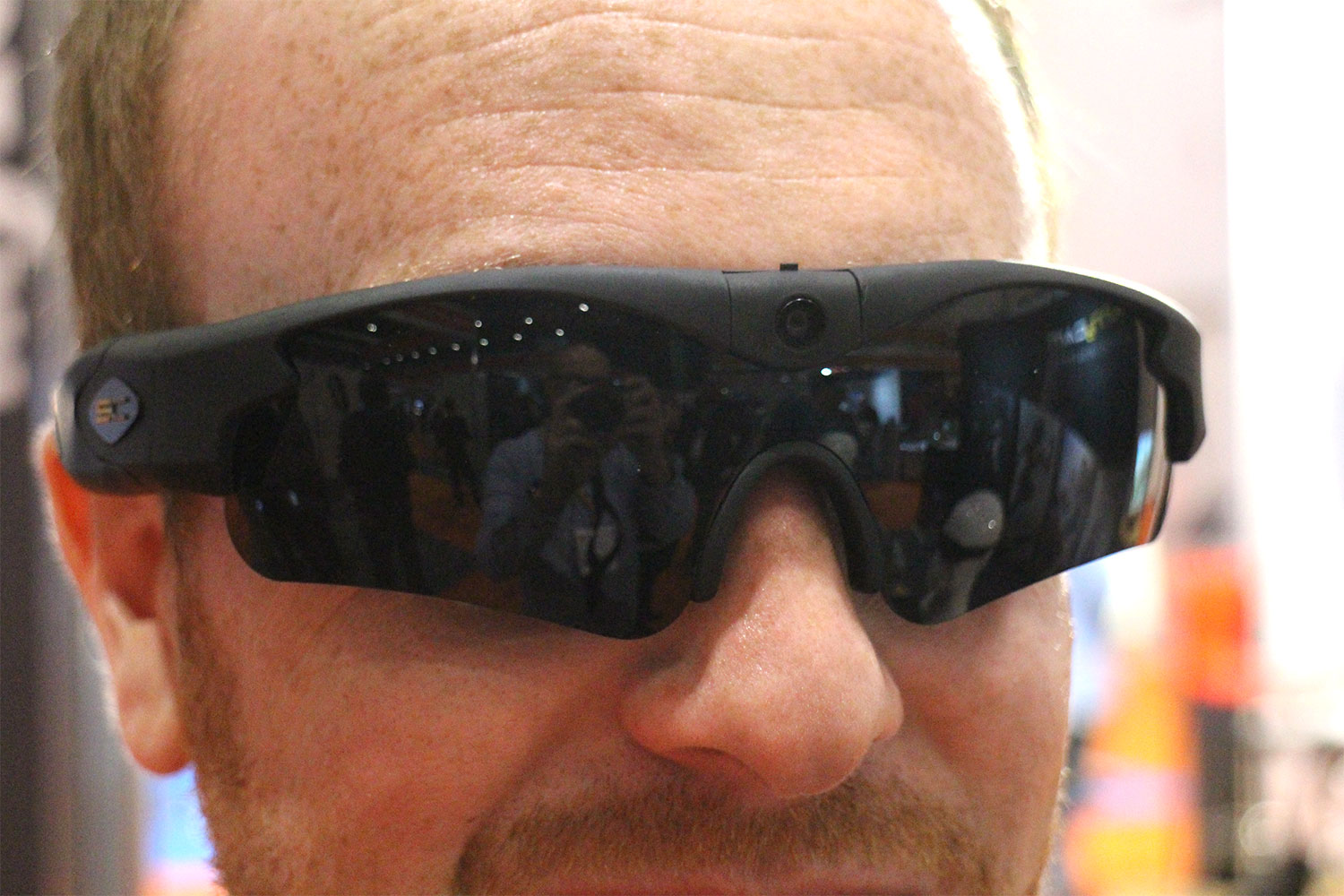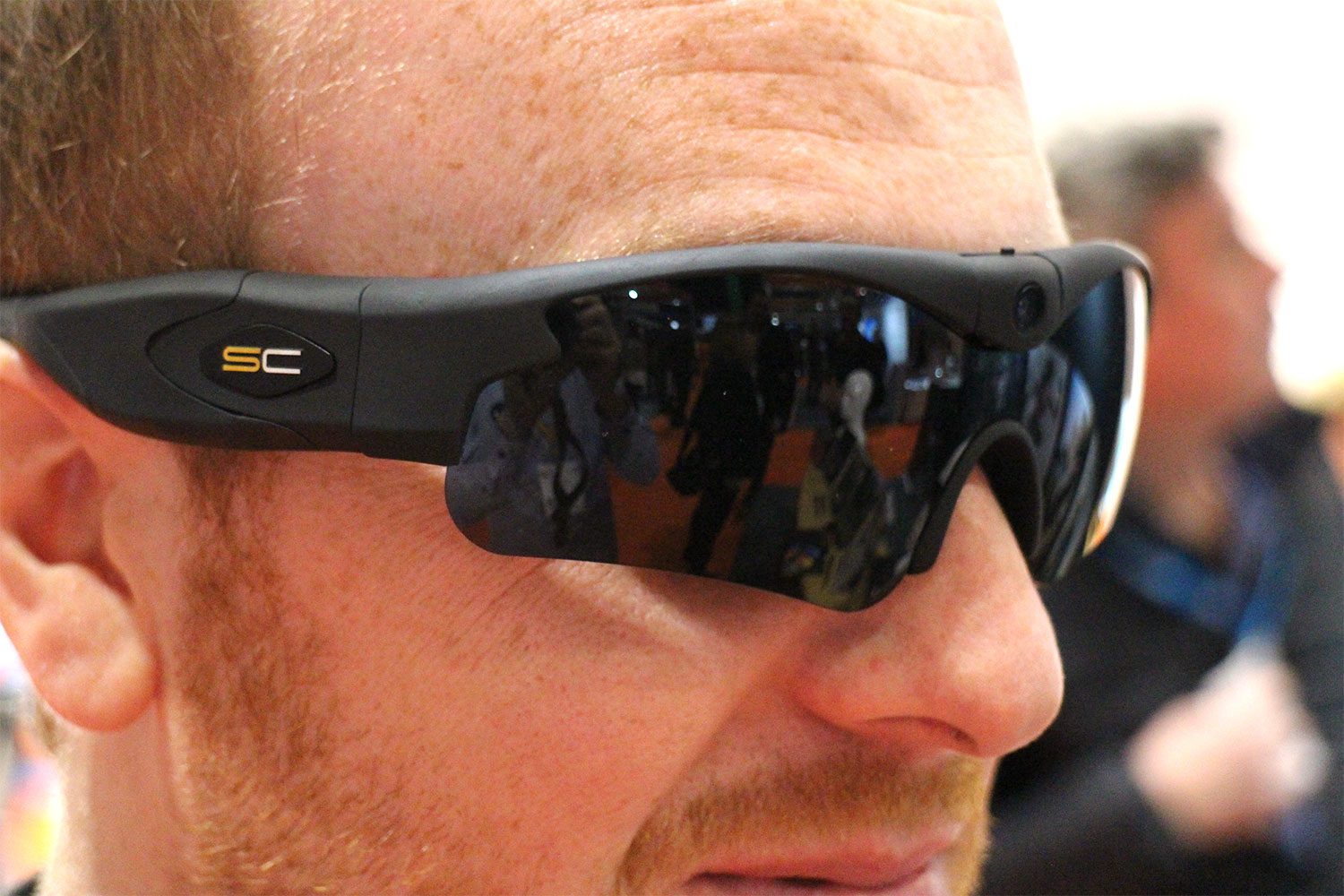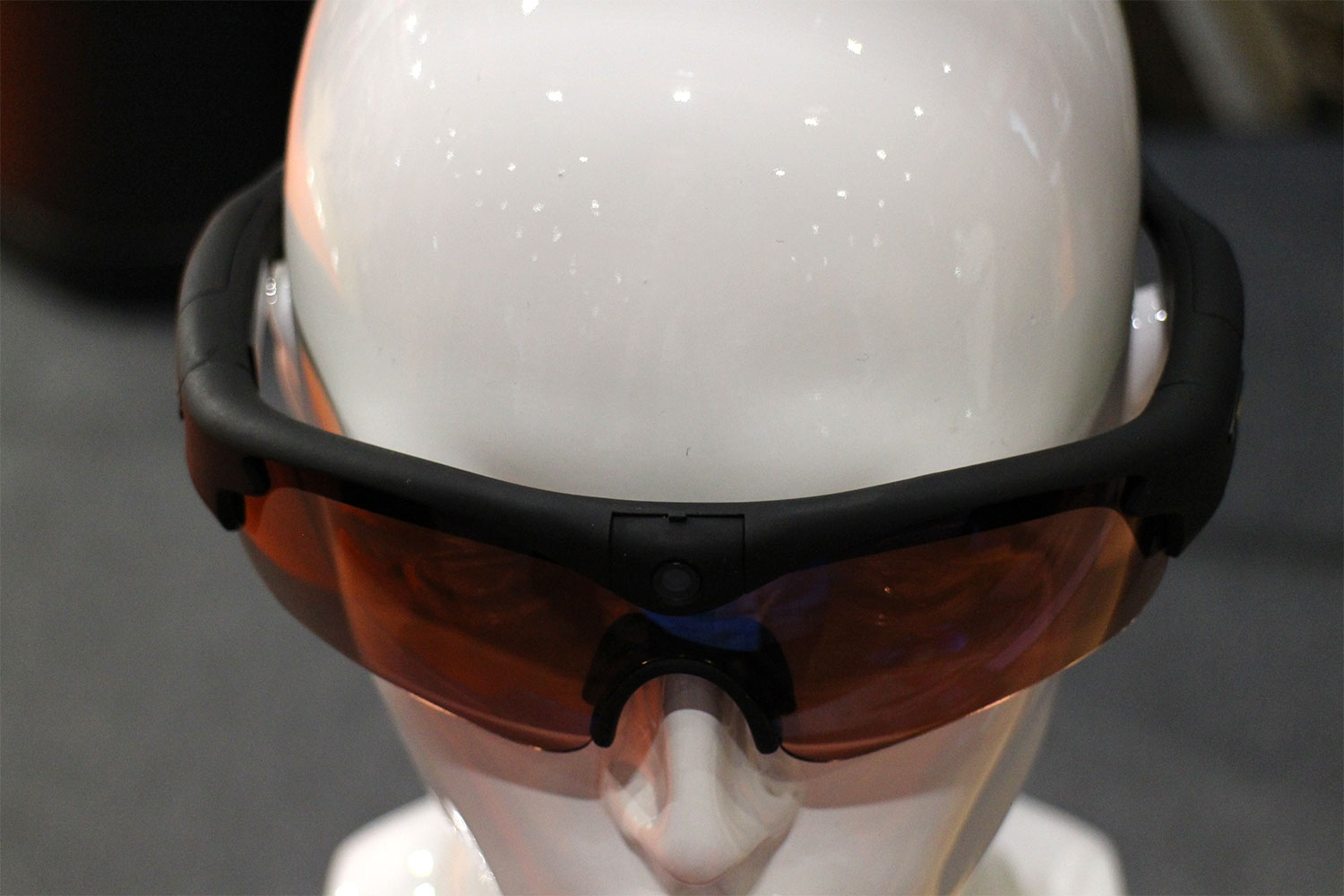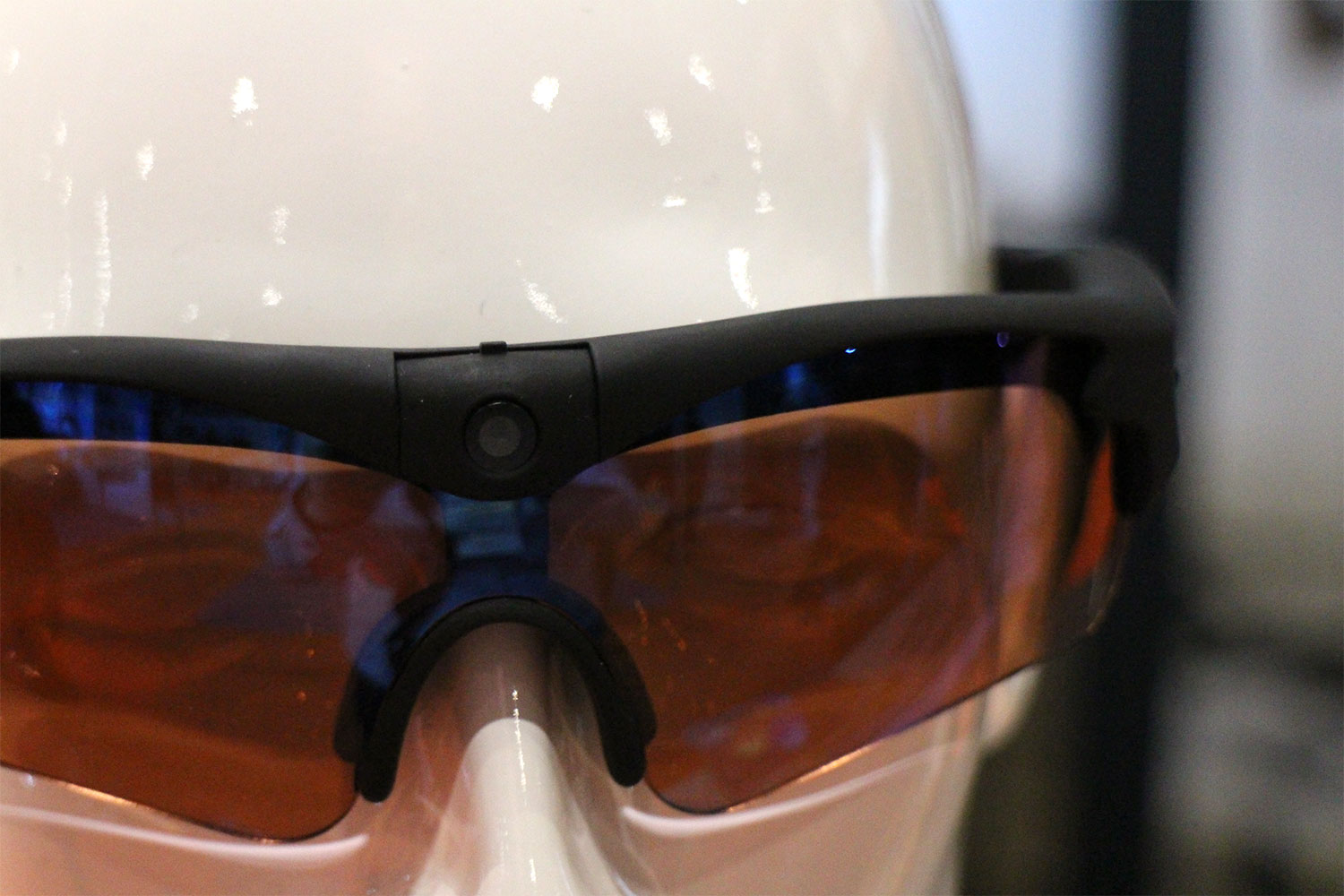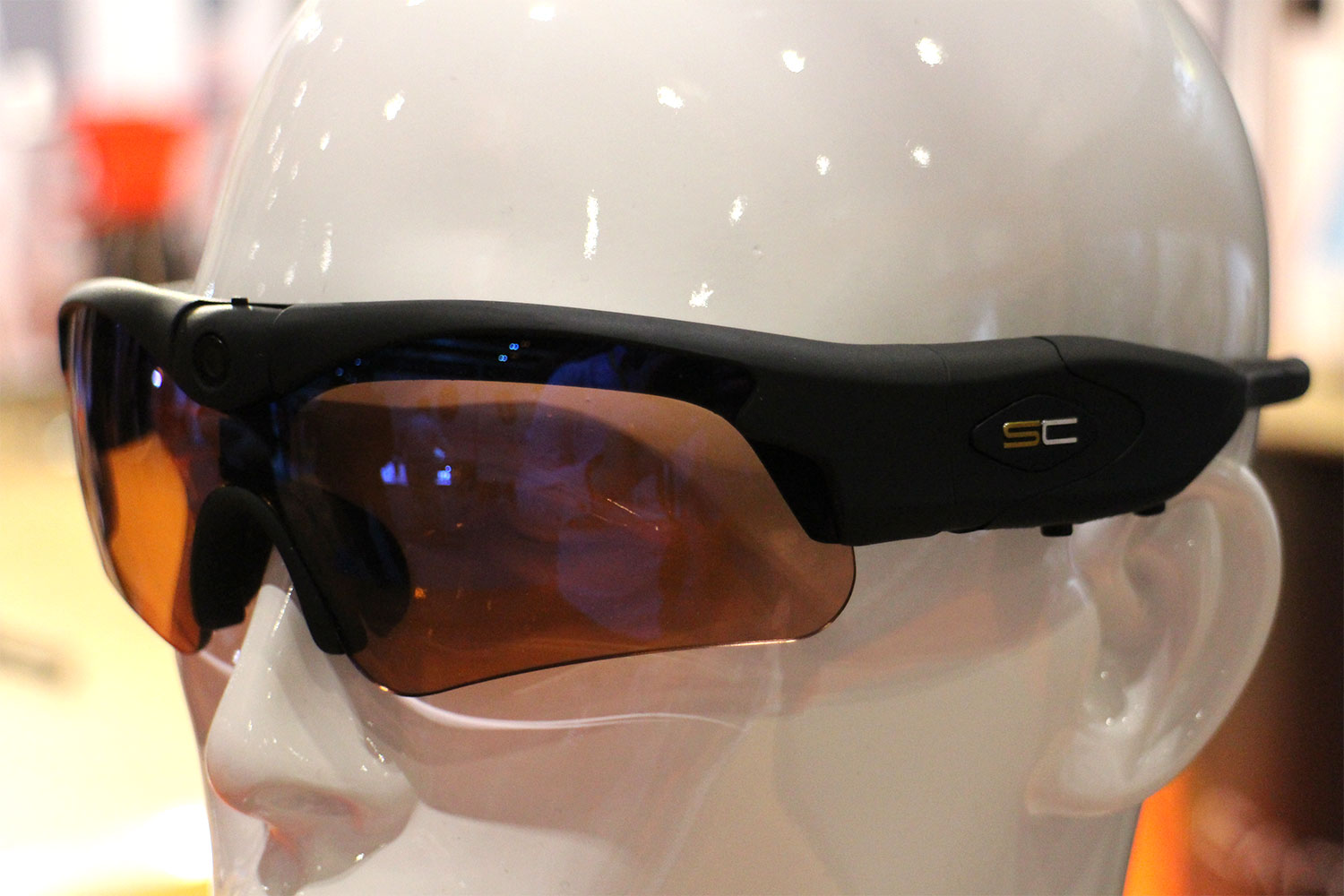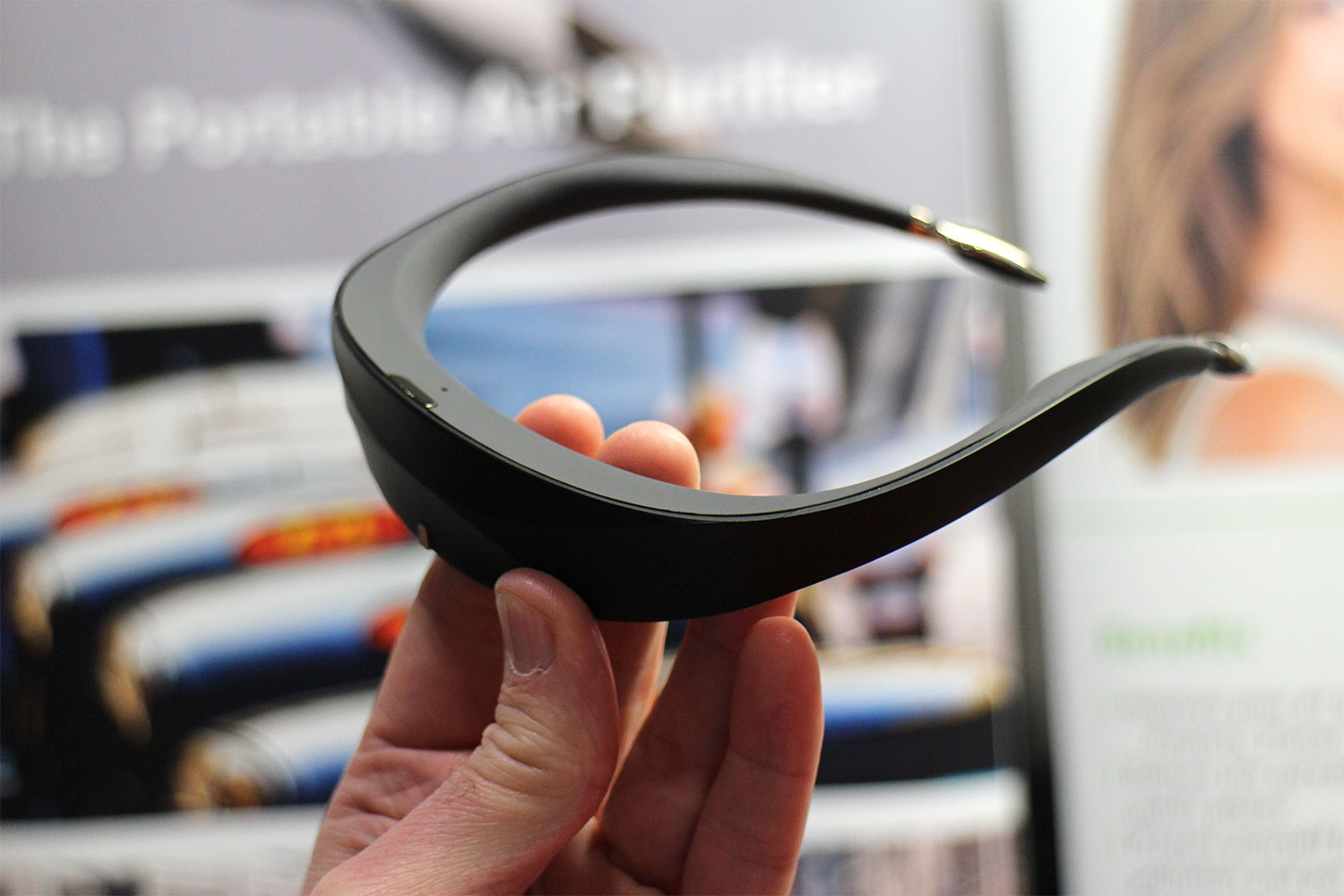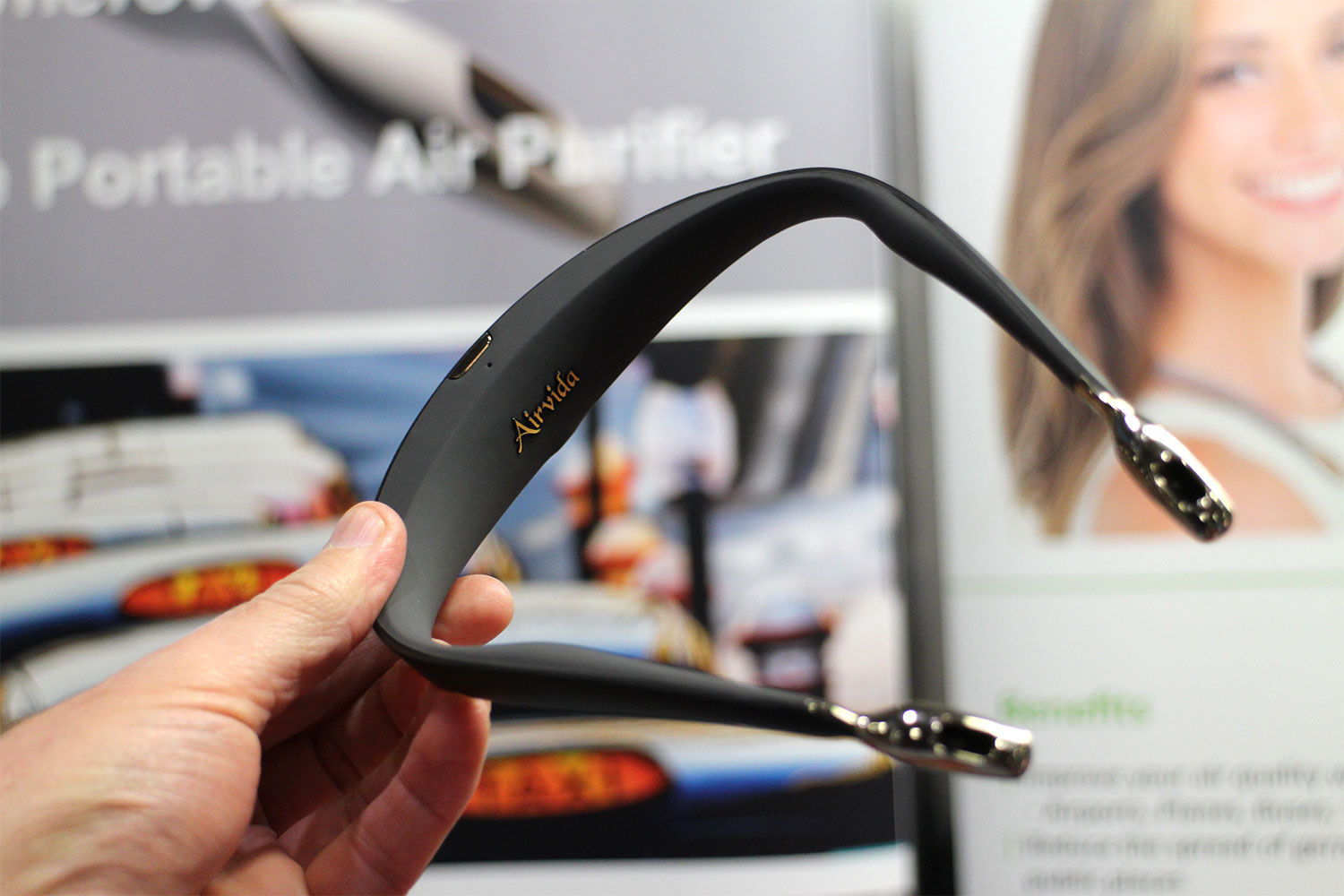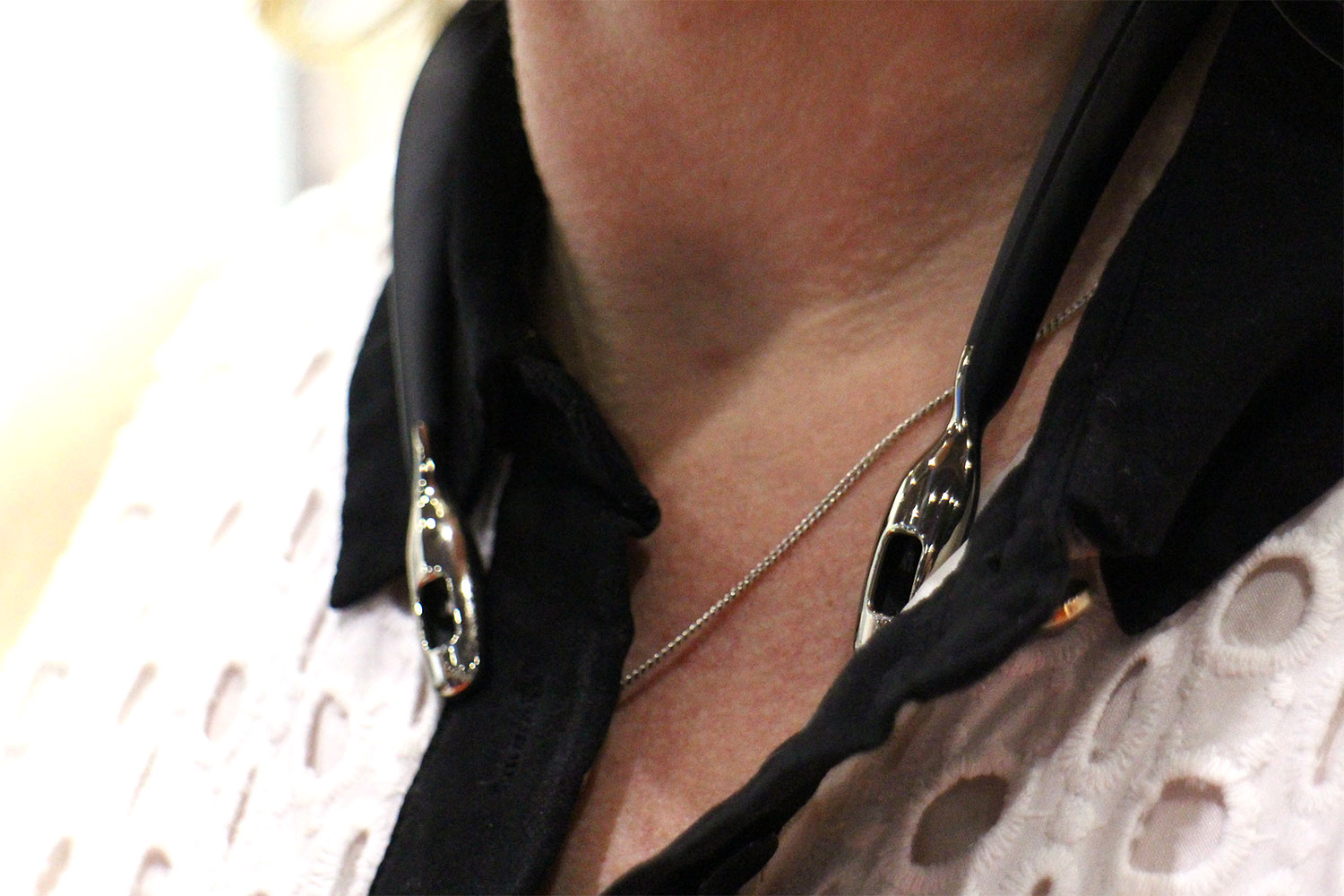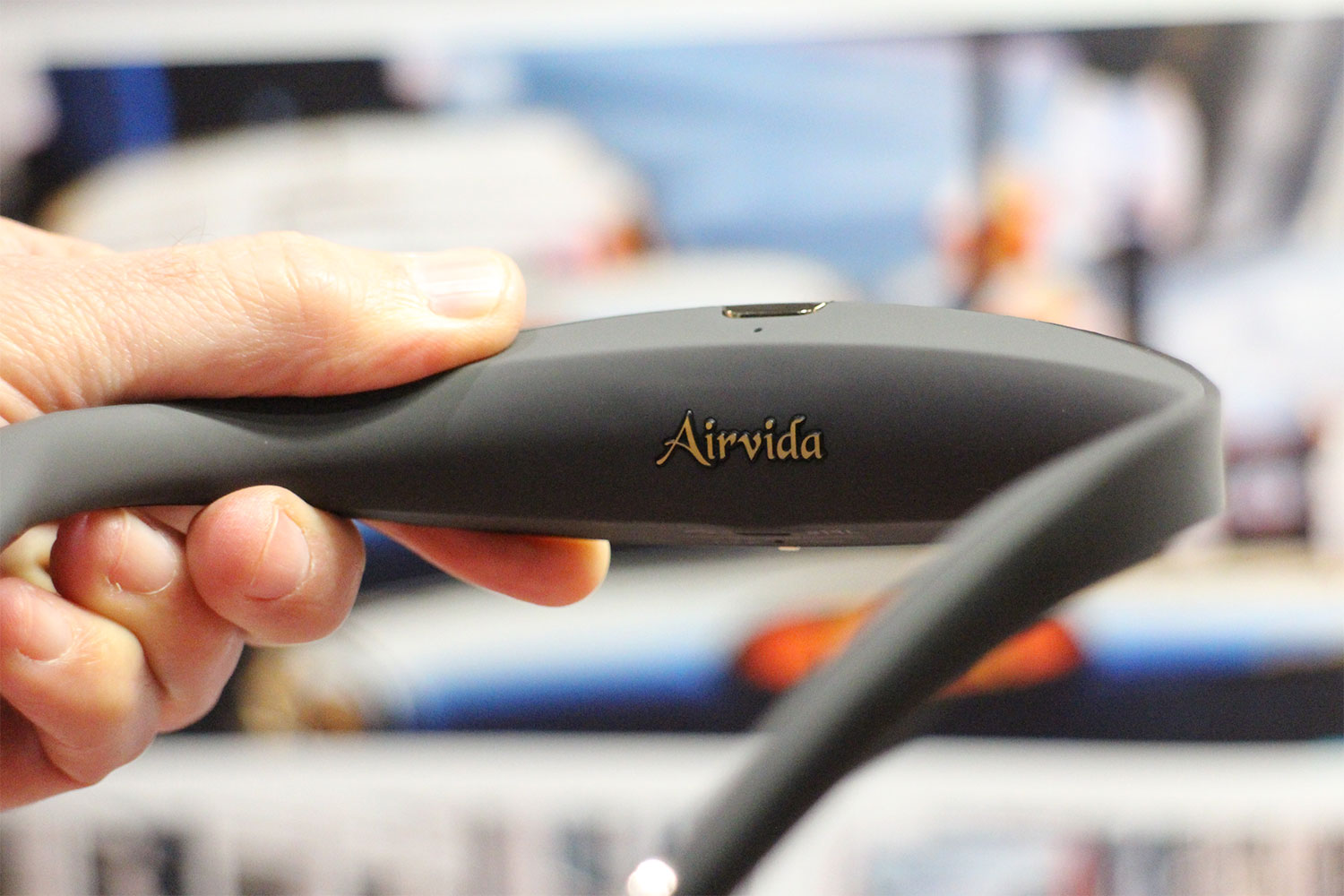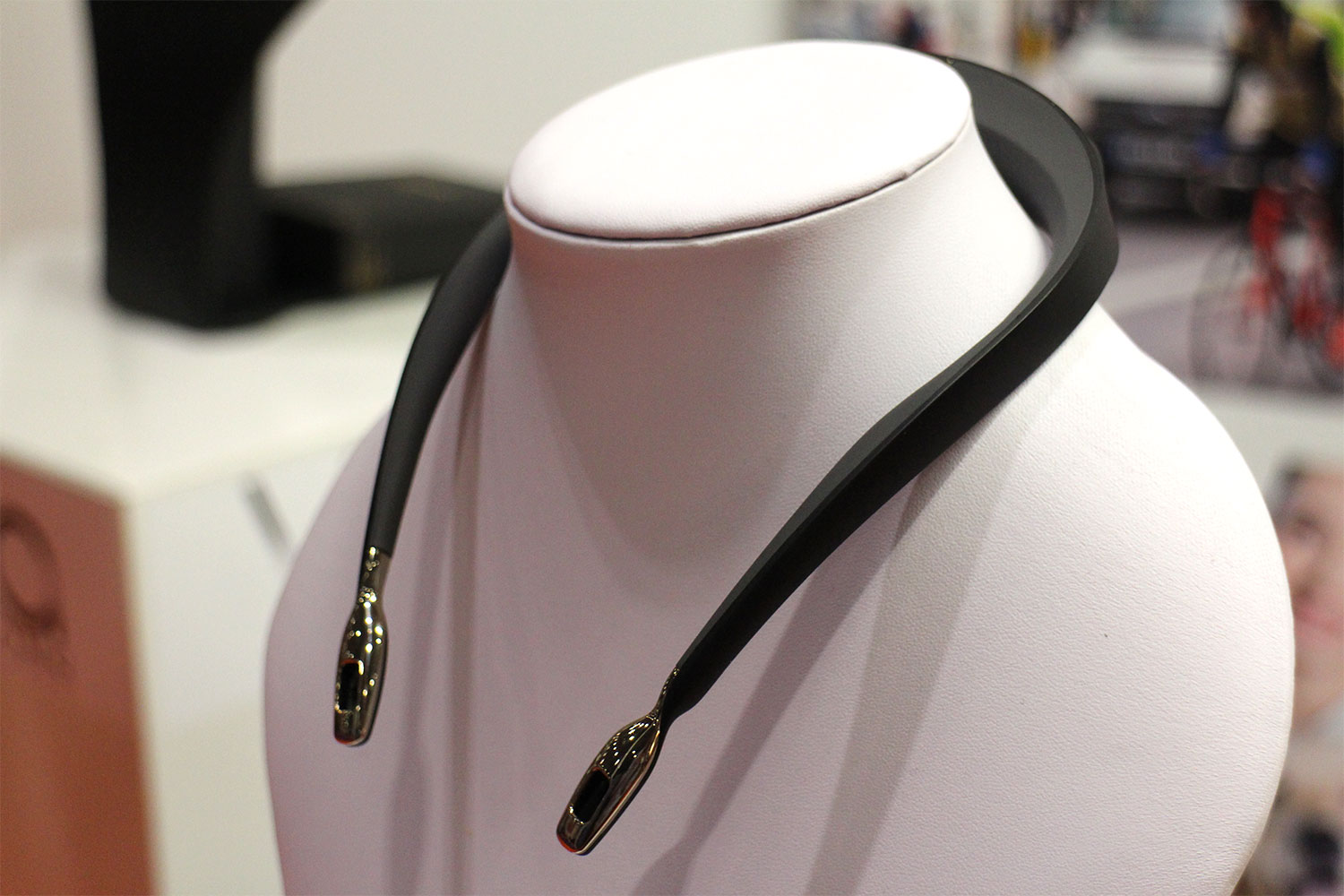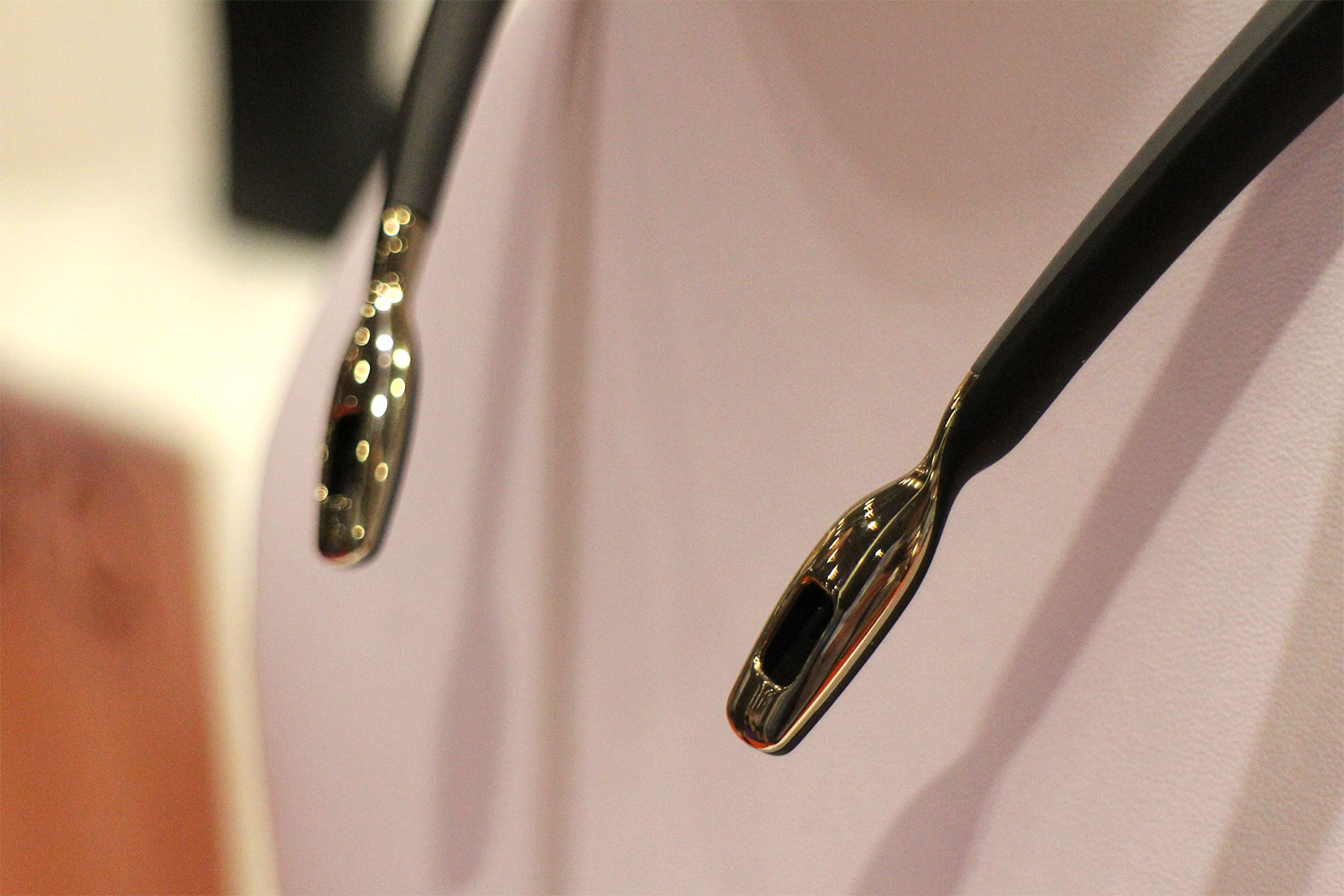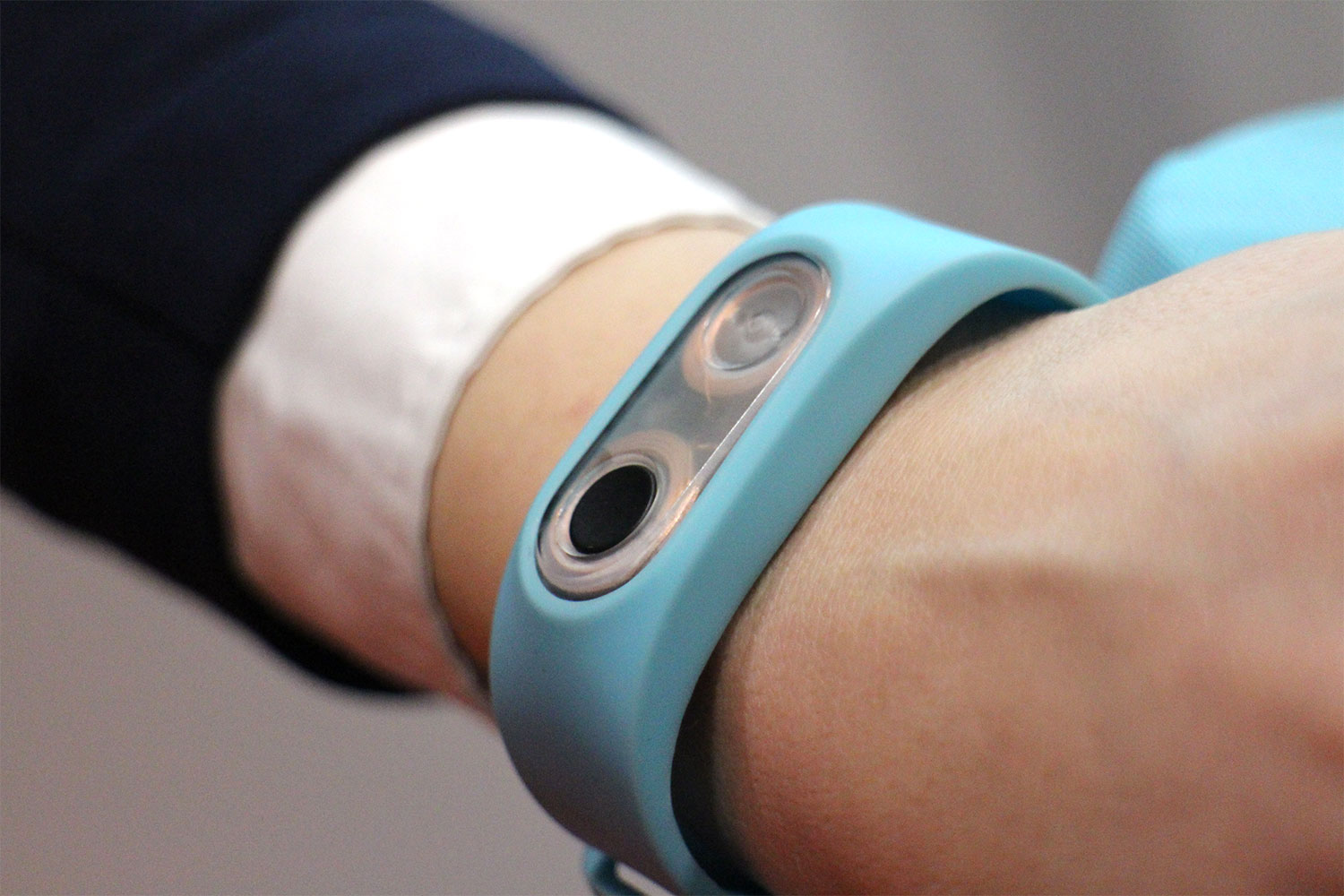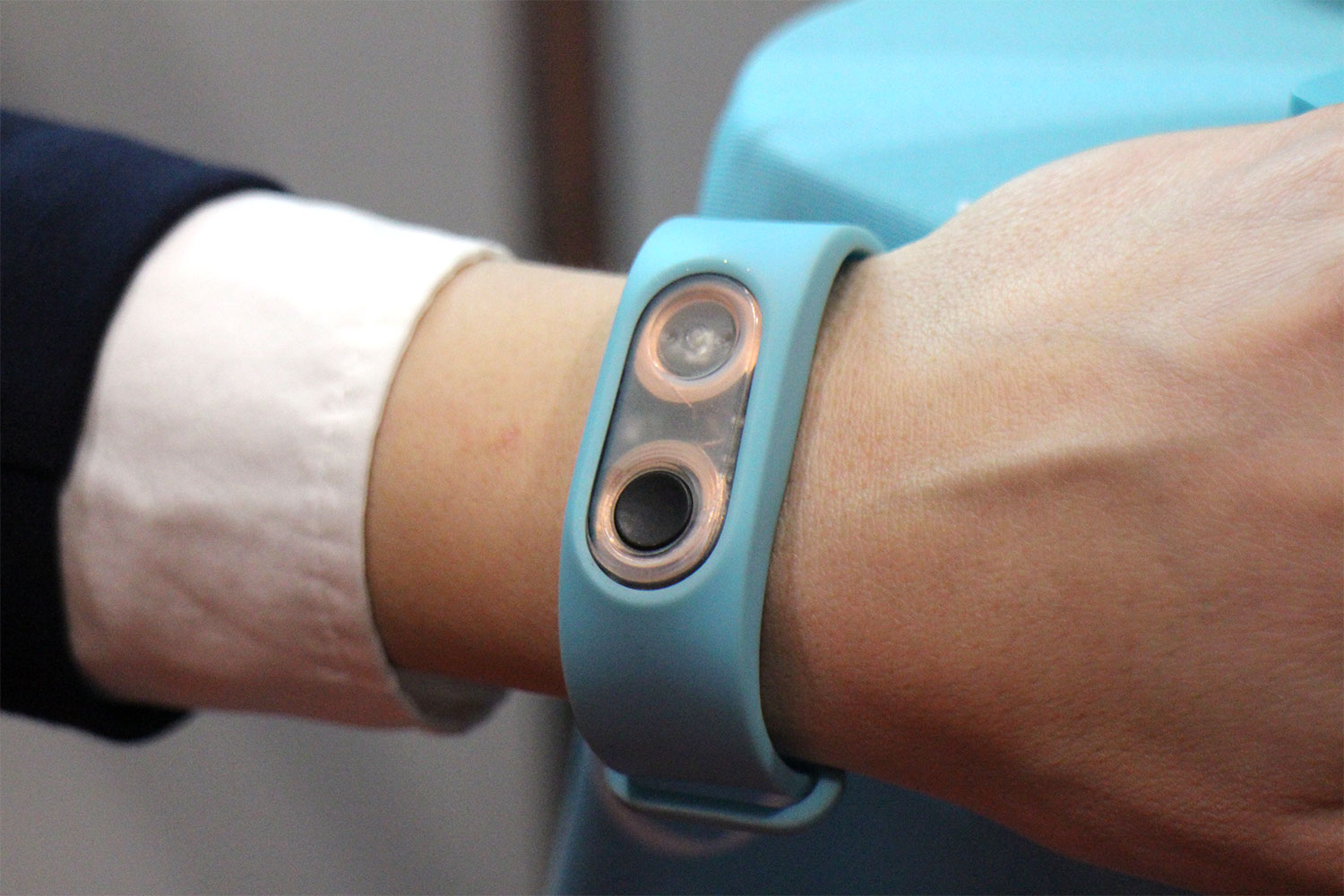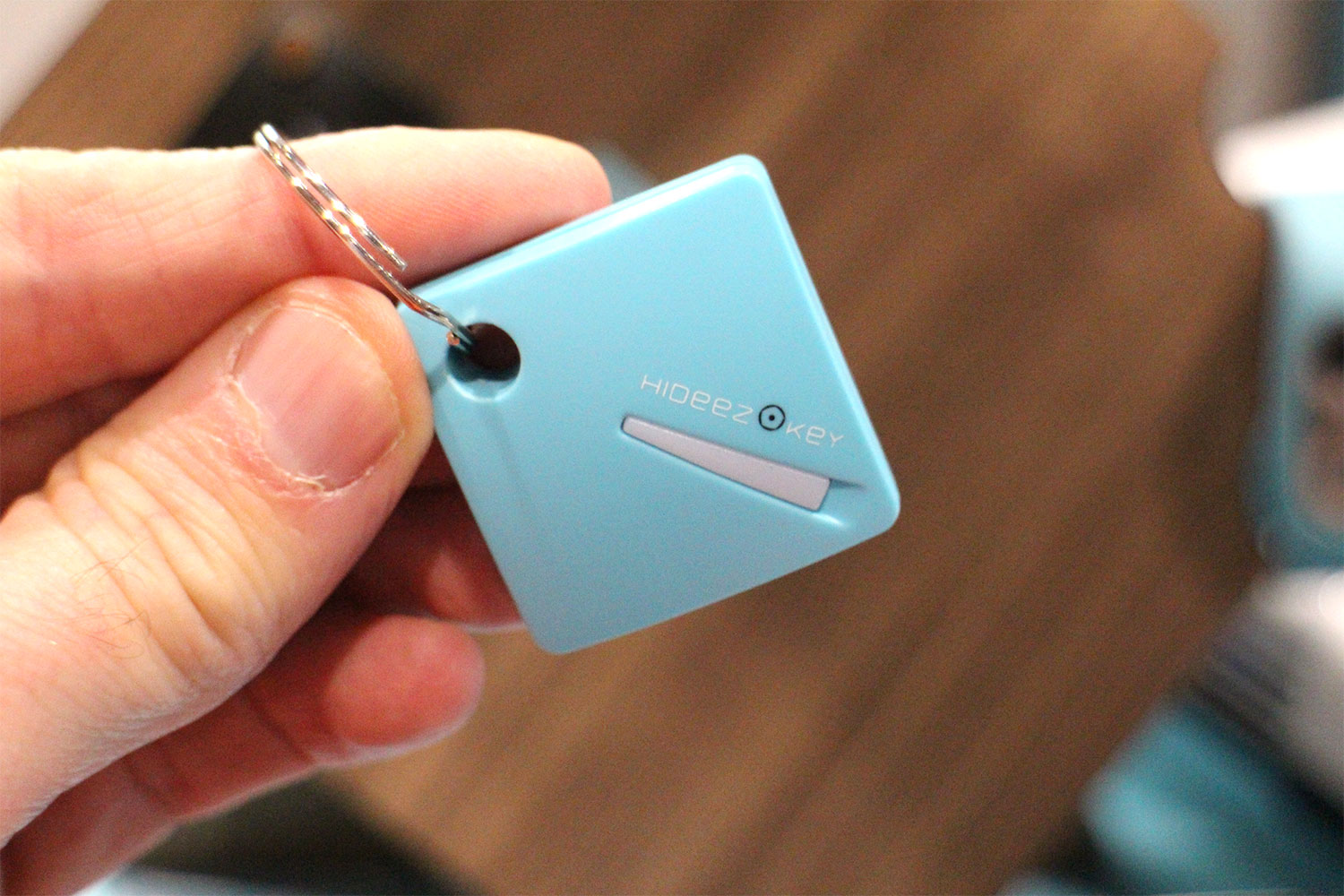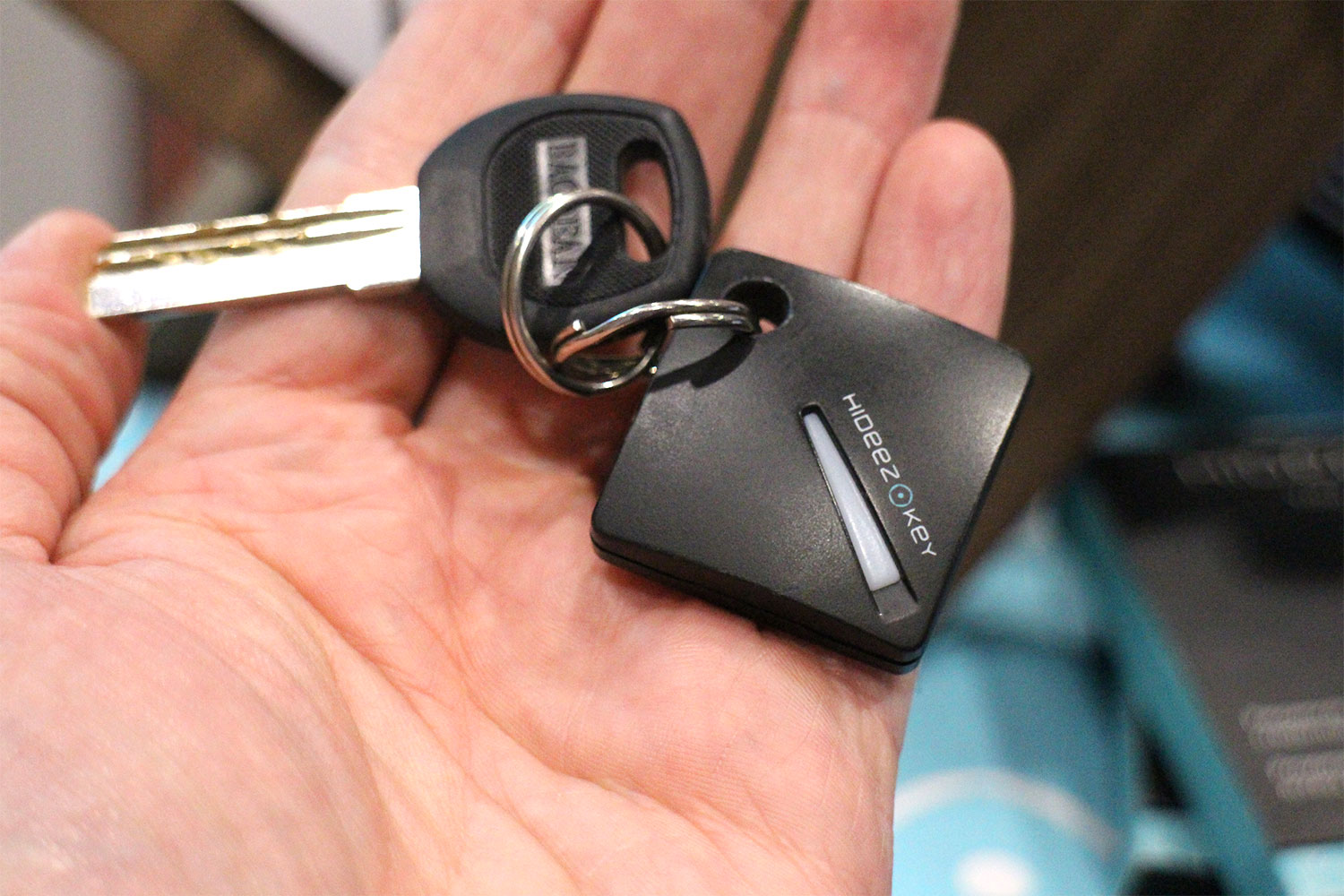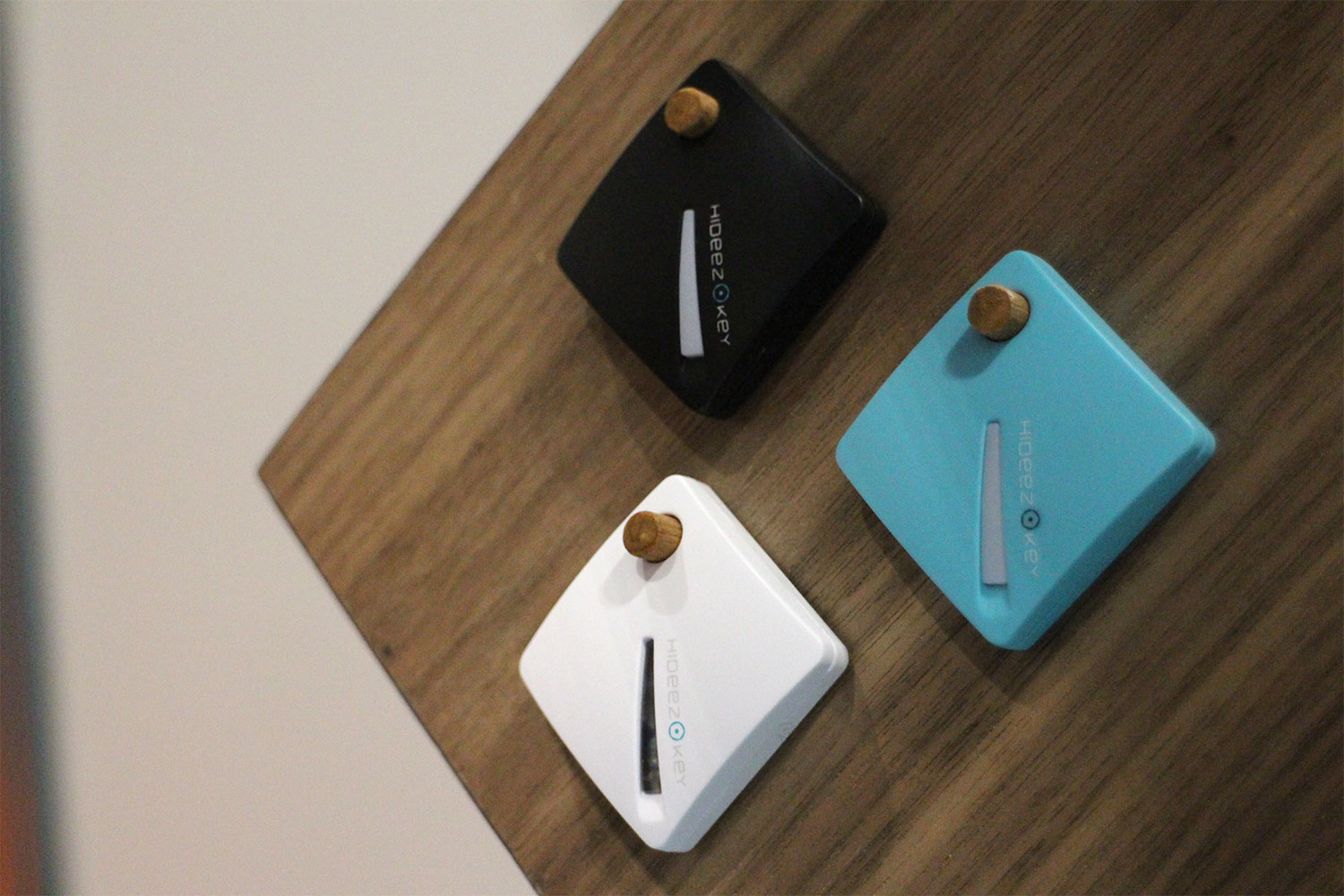
Hushme
Want to keep your conversations private, but don’t mind looking like Bane from Dark Knight Rises when you’re doing it? The Hushme is for you. It’s a “personal acoustic device,” that wraps around your mouth and using special sound deadening material, keeps whatever you’re saying from being heard by the outside world. It connects to your phone using Bluetooth, has a pair of earbuds for listening to music, and snaps together in front of your mouth with magnets.
If that’s not strange enough, it goes one step further in protecting your conversations, by adding an audible mask over the top. When you’re talking about what restaurant to visit in the evening, everyone around you may only hear the sound of waves, rain, various animals, or Darth Vader. Yes, really. We heard it working, and didn’t hear any actual words spoken by the person wearing the Hushme. It’s coming to Kickstarter in May for about $150, with production to start at the end of the year.
Helios Smart Ring
Vitamin D is essential for our health, but either we don’t always get enough of it, or we get too much, and that means getting burned out in the sun. The Helios is the first vitamin D wearable tracker, and it’s a smart ring worn on a finger. It treats vitamin D as a fitness metric, showing how much we’ve taken in during the day against the recommended amounts, our time exposed to the sun, and what type of sunscreen we should use. Tell the ring how much clothing you’re wearing, your skin type, and that’s about it.
The Helios is quite large, but will come in a variety of colors, and its little battery is charged in a special cradle. It takes about four hours, and will provide about three days of use. Data is collected and synced with a special app using Bluetooth. The Helios is an Indiegogo project at the moment, where prices start at $120, and the plan is to release it in May.
Sunnycam Action Cam Sunglasses
Smart glasses are making a comeback thanks to the viral success of Snapchat’s Spectacles. Sunnycam has actually been selling its video recording sunglasses for a while, and has a new model coming in the summer, adding Wi-Fi capabilities to its Sport Edition sunglasses. Equipped with a centrally mounted video camera, it’ll record an hour’s worth of video at 1080p, or can be connected to a battery pack for continuous use.
They’re surprisingly unobtrusive, and only the large arms give away their tech capabilities. The Wi-Fi model will make sharing videos easier, plus the team is working on a prescription lens add-on that clips to the inside of the frames. The sunglass lenses can be swapped out for different shades, or for polarized lenses. The new model will be out in summer for around 180 British pounds, or $220.
Portable Air Purifier
By shooting a stream of negative ions out in front of your face, the Portable Air Purifier drags all of the invisible pollutants, germs, and nasty things we don’t want to breathe in, out of the way — leaving us with lovely clean air to suck in. It hangs around your neck like one of LG’s halo-style Tone headsets, and is designed more like jewelry than technology. It’s made by a company that produces air purifiers for buildings, so there’s weight behind the way it works.
The battery inside will clean the air for about 30 hours and is recharged using a MicroUSB cable that plugs into the back of the headset. The company sees it being used in offices, on planes, or out in public. It’s also a way to actually do something about those poor air alerts we see, and to avoid germs or reduce hay fever. It’ll be out in April and cost less than 200 British pounds, which is about $240.
Hideez 2
Hideez already makes a small password manager that attaches to your keyring, but the next version will be modular, so you can wear it as a wristband, as a keyring, a pendant, or a belt clip. It’s a digital identity manager, storing passwords for devices and websites, RFID data for opening secure doors, and maintaining a Bluetooth connection with your phone and laptop in case of theft.
There’s plenty of tech packed into the new model, including an eye verification system in the app to secure your data, plus the wearable version will lock itself down when you take it off. We saw it lock and unlock a Windows computer without any time delay, based on the close proximity of the little tracker. The Hideez 2 has more memory than the first model, and it’s ideal for office management with storage space for 1,000 digital door keys, while the original only has space for one key. It’s out for pre-order in March and will cost around 60 euros, or $65.
